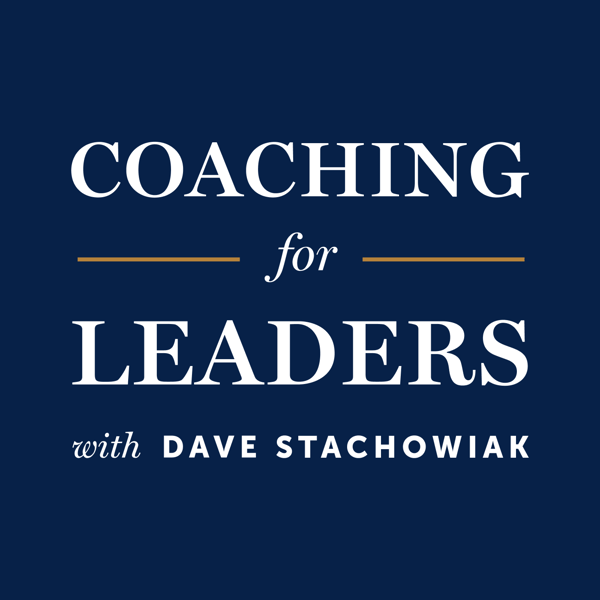191: Books, Books, Books
Coaching for Leaders
Dave Stachowiak
4.8 • 1.6K Ratings
🗓️ 4 May 2015
⏱️ 43 minutes
🧾️ Download transcript
Summary
Transcript
Click on a timestamp to play from that location
| 0:00.0 | It's the first Monday of the month we're tackling Q&A on books and other topics too. |
| 0:05.7 | This is Coaching for Leaders episode 191. |
| 0:09.3 | Produced by Innovate Learning, Maximizing Human Potential. innovate learning, maximizing human potential. |
| 0:13.7 | Greetings to you from Orange County, California. |
| 0:20.3 | This is coaching for leaders and I'm your host Dave Stahoviac. This is coaching for leaders and I'm your host Dave Stahoviac. |
| 0:24.0 | This is a weekly show to help leaders improve their communication, strategy, coaching, productivity, and personal mastery and it is the first Monday of the month |
| 0:35.1 | that Bonnie and I here are in studio just barely trying to recover from colds and you've gotten the worst of it this time. |
| 0:44.8 | I did get the worst of it as far as symptoms and illness goes, that's for sure. |
| 0:50.0 | You got the worst of it as far as having to take care of two small children pretty much |
| 0:54.8 | single-handedly for more than a week now so. |
| 0:57.7 | But in spite of that major innovation on this show for us to talk about, way way better, |
| 1:04.0 | it's like the 2.0 version of the Q&A show, |
| 1:06.3 | because this time, for the first time in recorded history, |
| 1:08.8 | we have planned in advance who will answer the questions first. |
| 1:12.4 | Yes. |
| 1:13.0 | We haven't talked about what we will say, |
| 1:15.0 | but we have talked about who will answer each question. |
| 1:18.0 | I think that's really a pretty substantial innovation |
| 1:20.0 | for people who have listened to the show before |
| 1:22.0 | and listen to me go, do you want to go first? |
| 1:23.4 | Should I go first? Well, and then I make a hand signal of some kind or shake my head and no one knows that I did it. |
| 1:29.6 | And yeah, we're moving up the professionalism here single-handedly or double-enden together. |
... |
Please login to see the full transcript.
Disclaimer: The podcast and artwork embedded on this page are from Dave Stachowiak, and are the property of its owner and not affiliated with or endorsed by Tapesearch.
Generated transcripts are the property of Dave Stachowiak and are distributed freely under the Fair Use doctrine. Transcripts generated by Tapesearch are not guaranteed to be accurate.
Copyright © Tapesearch 2025.

